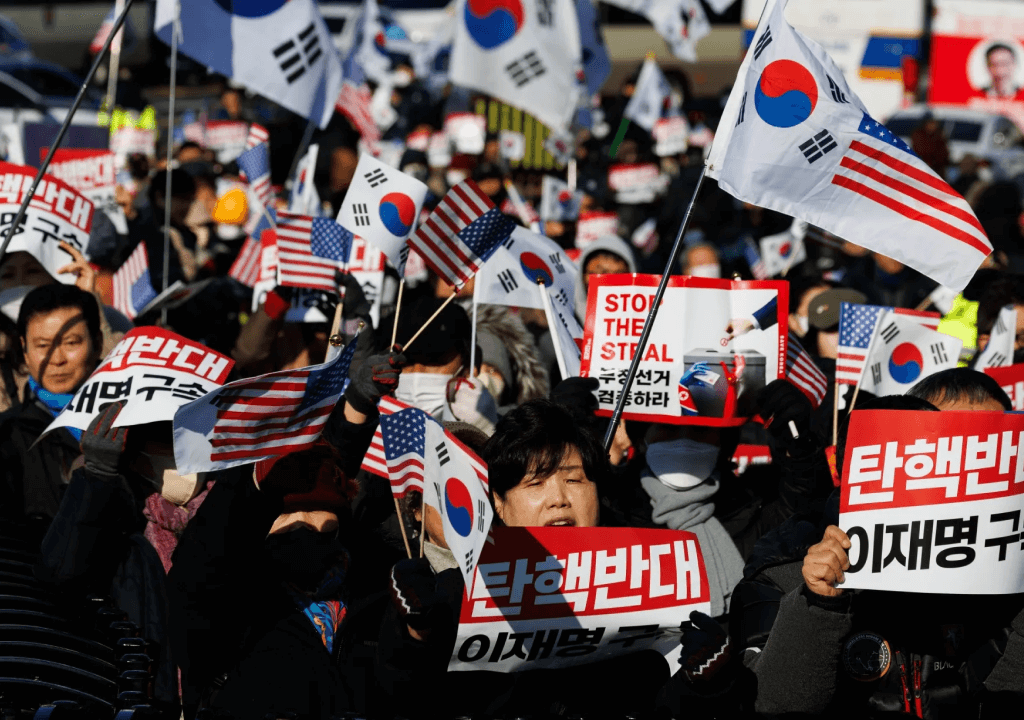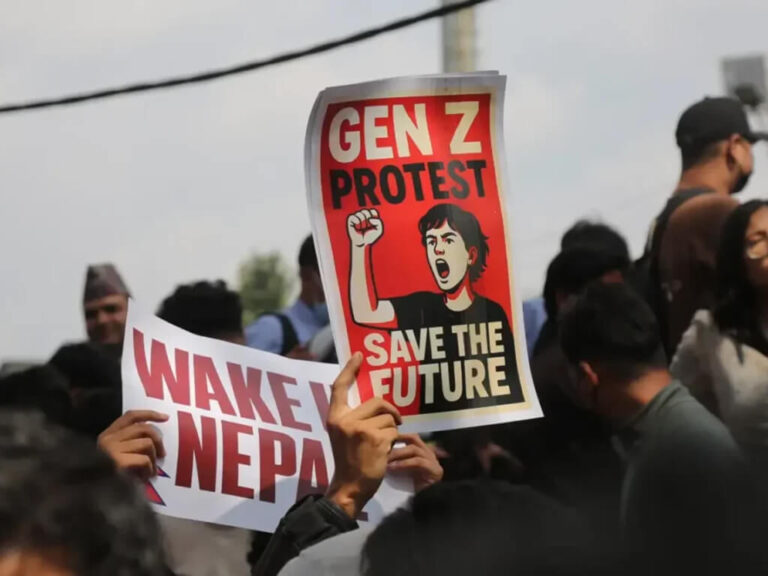Amid the growing challenges faced by Asian economic powerhouses, South Korea is mired in political unrest and ongoing protests, with its economy suffering the consequences. The political crisis has already unsettled the nation’s economic foundations—stock markets are volatile, the South Korean won continues to weaken, and foreign investors are seeking more stable markets. Deep-seated political divisions, marked by intense rivalries and a fragmented parliament without a clear majority, have stalled efforts to craft effective policies to address the economic damage. Instead of tackling these pressing concerns, South Korea’s political leaders remain absorbed in escalating tensions and deepening divisions, leaving the country vulnerable to further economic instability.
South Korea, one of the United States’ closest allies and Asia’s fourth-largest economy, faces mounting challenges with the return of Donald Trump to the U.S. presidency. His ‘America First’ agenda and economic policies pose significant threats to South Korea. During his previous term, Trump labeled South Korea a ‘money machine,’ suggesting demands for Seoul to pay billions more to host U.S. troops—a substantial financial burden. He also pledged sweeping tariffs as part of his agenda. These measures would heavily impact South Korean exports and potentially cause a global economic ripple effect.
Trump’s focus on reducing U.S. bilateral trade deficits places South Korea at risk, as the country holds one of the largest trade surpluses with the U.S. Combined with domestic political instability, these external pressures contribute to an increasingly precarious economic outlook. South Korea’s currency, the won, which was already weak against the dollar, has further depreciated due to ongoing political unrest. The absence of clear leadership is creating uncertainty for businesses, making it difficult for them to plan for the year ahead and further deepening the nation’s economic challenges.
A recent poll by the Bank of Korea found that business sentiment has hit its lowest level in four years. The Composite Business Sentiment Index fell by 4.5 points from November, marking the lowest reading since September 2020, when the economy was reeling from the full impact of the COVID-19 pandemic. In a separate report, the central bank projected that South Korea’s economic growth in 2025 will fall below 2%, driven by weak export performance and declining consumer spending. The report further cautioned that growth could worsen if global trade tensions continue to escalate.
South Korea stands at a critical crossroads, where both politicians and economists should be working together to address the country’s faltering economy. Yet, neither side seems able to take meaningful action. Instead, the nation is mired in a deepening political crisis, leaving little room for economic solutions. President Yoon’s efforts to evade arrest following his declaration of martial law and reclaim the presidency are only likely to escalate the turmoil, stoking anger among large segments of the public. Meanwhile, his weakened position in a legislature dominated by the opposition jeopardizes even the most fundamental tasks.
Another possible outcome is the call for a new presidential election. The main opposition party, the Democratic Party, which holds a parliamentary majority and won the last election, is pushing for this. They are likely to emerge victorious once again. Should this occur, it could bring the political stability South Korea desperately needs, aligning the presidency and parliamentary majority under the same party—a critical step in steering the country out of its current crisis. While the toxic political climate will remain, this may be the only viable path to resolving the quagmire South Korea now faces.








